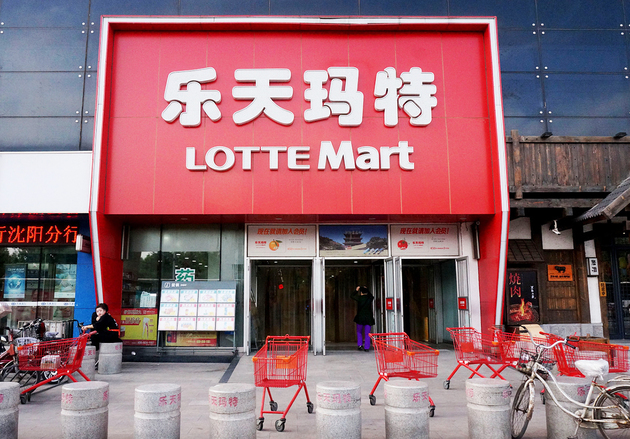
Photo/VCG
Oct. 15 (NBD) -- South Korean retailer Lotte Mart is planning a full retreat from mainland China by closing all of its remaining 12 stores by the end of this year, reported news outlet Yicai citing a South Korean industry insider and a source surnamed Cui with the PR team of Lotte Mart's parent company Lotte Shopping.
It is noted that since the second half of 2016, Lotte Mart has seen losses of nearly 1 trillion won (899 million U.S. dollars) in the Chinese market.
Lotte Mart struggles to stay in business
Of the 112 stores Lotte Mart originally opened in China, 74 suspended operations due to fire safety violations in 2017. Another 13 stores voluntarily chose to shut down their business temporarily in the same year.
To keep afloat in China, the retail chain injected billions of won of emergency funds into its Chinese retail business in March and August of last year, respectively. However, the effect is limited.
The company had no choice but to sell its Chinese assets. However, it was hard to find a suitable buyer who is willing to take over the whole asset package at a desirable price. Due to great difference in valuation, Lotte Mart decided to sell them separately.
So far, Lotte Mart hasn't found buyers for its remaining 12 stores. The retailer has finally decided to liquidate these assets by the end of this year, a source said.
As the Lotte Mart stores sold to rivals Wumei Holdings and Liqun Commercial Group (601366.SH) earlier this year will not carry the name of Lotte Mart any longer, the closing of the remaining 12 stores would signify a complete retreat of the South Korean store chain from the China market.
Competition heats up in China retail market
China's retail market is filled with growing uncertainties due to heated competition. In addition to local operators, U.S. retailer Walmart, French retailer Carrefour and German retailer Metro AG, who entered China market early, are formidable players.
Amid fierce competition, many foreign retailers are turning to new retail by teaming up with local e-commerce giants such as JD and Tencent. Despite that, their operations are still under pressure, let alone the more conservative Lotte Mart, said senior retail analyst Shen Jun.
Another source working at a South Korea retail company noted that South Korea retailers share a common trait -- they stick to home market business models all the time - and do not have a receptive ear for localization strategies, which would ultimately undermine their operations or lead to high costs in China.
Where to go after its China retreat?
With regard to Lotte Mart's future plans after its China retreat, Cui didn't give a definite answer. But a South Korean analyst says Lotte Mart will focus on the Southeast Asian market.
Currently, it is running 13 stores in Vietnam and 46 in Indonesia and more are expected to be added in the two countries within this year.
According to financial reports, Lotte Mart pocketed 2 billion won (1.8 million U.S. dollars) in revenue in Vietnam in the first half of 2018, up 83 percent year on year. Despite an 11.3 percent decrease in operating revenue in Indonesia during the same period, the Indonesia market contributed nearly 80 percent of Lotte Mart's overseas profits.
However, the afore-mentioned analyst underscored that though the performance in Southeast Asia is encouraging, any strategic change can only offer short-lived effects if Lotte Mart fails to jump on the new retail bandwagon.
Email: tanyuhan@nbd.com.cn


 川公网安备 51019002001991号
川公网安备 51019002001991号





